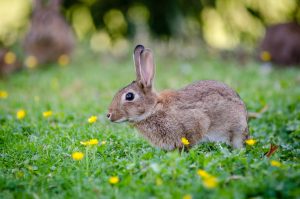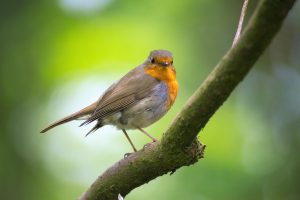Your garden is the threshold between worlds. It’s where your home meets the natural environment. Not only does that make it the perfect place to enjoy the sun and grow a gorgeous garden. It also makes it a potential home for all kinds of wildlife.
RELATED POST: Don’t Let the Summer Kill Your Garden
Not all of them are welcome, especially those that can eat up your favorite flowers and ruin your soil. When it comes to pest control, however, some things can be just as destructive. For instance, taking the “burn it all” approach with chemical pesticide and traps can do more harm than good. This can cause a lot more damage to your environment than you intend to. For that reason, here are some more natural ways to protect your patch.

Choose natural repellents
The plants you choose of the garden can do a lot more than help it look pretty and attract pests. In fact, some plants can drive away the pests that your other growths attract. These are known as companion plants. Some of them are naturally repellent to insects like mosquitoes, such as lavender which produces a very pungent smell. Citronella is so effective that you can even spray the oil of the plant around your flower patches to chase away insects. Different plants work with different pests, however. So identifying your problem is going to be a crucial part of finding the right tool.
Maintaining your barrier
If you live out in or close to the wild, then insects aren’t likely to be your own problem. Larger pests like foxes and even deer can come into the garden, rifle through or eat your produce, and do a lot of damage to the lawn. However, most gardeners want to avoid traps, barbed wire, and any other preventative measure that could cause real harm to the natural wildlife around them. Normal fences can often be outmaneuvered by wildlife, which is why investing in tools like a deer fence can be the safest and most effective. If it’s a burrowing animal, you can install wire mesh hardware cloth under the soil’s surface. Or spring coffee grounds into active tunnels used by rodents.
Invite some predators
You might not want to kill deer or gophers. But pests like aphids, slugs, and snails can be a much bigger problem when left to spread. And getting them out of the garden isn’t going to cause too much damage to the wider ecosystem. Besides repellent plants, there are also companion plants that can attract the predators of your pests. Similarly, attracting birds by building bird feeders or providing water for them can attract predators that eat slugs, caterpillars, and other kinds of leaf-eating creatures. Not only are you dealing with your pest problem, you’re sustaining the natural order of the ecosystem and supporting native populations in your area.

Besides the methods mentioned above, there are organic pesticides with much fewer harmful chemicals. You should use them with caution, however, as they can still cause harm to beneficial insects like bees and ladybugs. So stick to natural solutions as best as possible.

